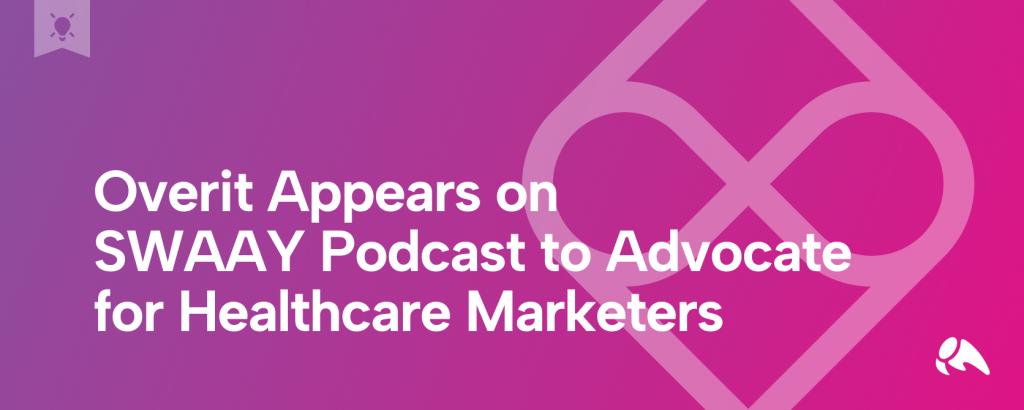My guess is you’ve read many an article about why and how corporate blogs are great tools to interact with customers and members of your industry. It’s true. Blogging gives your brand an outlet to share company news, impart wisdom on current events and express opinions on developing trends to build authority and valuable site assets.
As terrific an opportunity as blogging is, it often comes with one extremely common roadblock for many: My industry doesn’t allow much creativity. I can’t really “have fun” with my blog. So…what do I write about?
This particular issue was raised after we published “The Secrets to Writing a Readable Blog.”
Terence Coughlin commented:
“… all you’ve suggested is well and good, so long as there is the presence of a company culture that promotes and champions such personal efforts (and blogs always come down to personal efforts). In creative industries such as Overit’s, such a culture may be a base requirement to be relevant and successful. But in other industries, particularly regulated or otherwise more conservative B2B industries, I’ve witnessed many efforts of corporate blogging that started well, but rapidly died on the vine due to inability to allow passionate, willing people to be passionate, willing, and responsive content creators (be it by blogging, tweeting, youtubing, etc.)”
It’s a valid point. At Overit, it’s easy to take for granted the creativity we see both in-house and throughout our larger industry. Here, creativity isn’t just encouraged, it’s required. Not all businesses operate the way we do.
So, how do you maintain an interesting blog if your industry is heavily regulated? Or if it’s known for being straight-laced, uncontroversial and traditional? Or if your management is?
Corporate blogs are handy, but they aren’t for everyone. Before you commit to a blog strategy, ask yourself a few questions to set yourself up for success.
1. What can we talk about? What are the conversations we should be having?
Equally important to ask: What can’t we talk about it? What topics do you want to stay away from?
As you outline your blog strategy, create guidelines to help your content writers understand what topics can and cannot be addressed. Familiarize yourself with laws, industry regulations and codes, clients or customers that can and cannot be mentioned and any technology or other corporate materials that must be kept confidential.
Create a list of topics you would consider addressing in blog content matter and make them part of an internal Editorial Calendar. Are you willing to discuss industry trends? Are you willing to be critical of competitors, or at least discuss what distinguishes your company’s decisions? What do you have to say that’s worthwhile?
Asking these questions ahead of time and letting employees know where the line is will guide them in their company blogging and ease the internal concerns about whether it is safe for them to mention certain aspects of your business.
2. How much time, effort and personnel are we willing to devote to our blog?
Maintaining a blog requires real resources. Know this and don’t enter into creating a blog without understanding what such a project entails. It’s not only the writing of the content that takes time.
Before you can sit down and write a post, you’ll have to confirm your topic, point of view, potentially interview subjects and more. You might choose to create corresponding photography, design or video content to share with your text. When the post is created it may have to be reviewed, edited or go through “proper channels.” Once published, time will have to be dedicated toward promoting it.
All of these take time. They take away hours from other – billable – projects (*shudder*). They take people and their brains to figure it all out!
3. What are successful tactics being taken by others in similar industries?
When people think of blogs, they often think of highly creative, freely written content posted in creative industries sharing ideas, poking fun at the news or company events or otherwise being presented in a relaxed manner. Not every business has the freedom of expression we do at Overit, especially those that are in heavily regulated industries or simply those that deal with very specific subjects.
However, you can still find wins with blogging, even if you’re regulated and/or limited. Working in a small niche doesn’t mean you don’t have something to talk about and can’t enjoy sharing what you know or think.
One such example is the blog of The Plastic Surgery Group (client), a Capital Region-based provider of surgical procedures, services and selected medical and skin treatments. Here, the doctors use the company blog (and other social channels) to provide health tips, updates on new medical procedures, seasonal advice and profiles of staff and staff activities.
Recently, The Plastic Surgery Group provided information on “Finding the Plastic Surgeon for You Online.” This is a prime example of how doctors can provide industry information and help to its audience without running into trouble with health regulations or patient privacy concerns. Whether it’s providing skin care tips in the winter or just wishing you a happy holiday season, the doctors have a way to keep in touch with their past, present and future clients, as well as reach out to other community and industry members.
Sometimes it’s as simple as figuring out:
- What your audience wants to read
- What we, as experts, can offer to the conversation
Does your company have a loyal fan base? Are you telling these people about your corporate events and community involvement? What about the trade shows or conferences you are attending, or your product launches or other news? Sharing insight into your internal culture as well as your public-facing involvement is often a driving force for people to want to work with you – and sometimes for you!
Does your company have an executive with years of experience in the industry? You may only write to a narrowly tailored audience listening to a specific trade or vertical, but there are people in your industry looking for thoughts from your leaders. See what stories your executives can tell, experiences they’ll share and lessons they’ve learned. Some of our favorite posts on the blog are authored by Dan Dinsmore, Overit’s president. With two decades worth of business experience, the stories and insight he’s able to share are extremely valuable and of interest to our audience.
If you are writing from a regulated field, you’ll need to understand the approval process (and how to expedite it) required by your legal team or how you can push for innovation in a regulated industry. Don’t just accept that you “can’t” blog or share social updates with your audience. Push for it. Alexis Hall wrote a great primer on strategies for online marketing innovation in highly regulated industries. Learn from the panel of experts she interviewed, and then bring it in-house.
4. What does your industry naturally touch?
The content team at Overit touches many different verticals. Some of them are sexy, and others are as sexy as, say, detailing the workings of various turbine parts. Just because the topic may be harder doesn’t mean our creativity is any less in effect. When it comes to content strategy, writing about things your customers are interested in is sexy, even if it’s not sexy to you – or to everyone. You can also lean on parallel industries for support.
In Lawrence’s post about animation in content marketing, he shows how Hellmann’s was able to transcend out of its box of mayonnaise to put a spotlight on sustainability living. These are the content pieces you can create simply by looking at your niche in a new way.
As Terence’s comment from above illustrated, we’re not all coming from the place of in-house creativity. By answering the questions above, you’ll be able to identify what you can talk about, what you want to share and how (and who!) you want to share. Pretty soon you’ll be well on your way to providing well-rounded content on your company’s blog.







